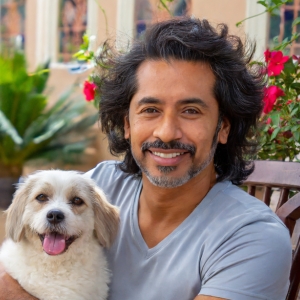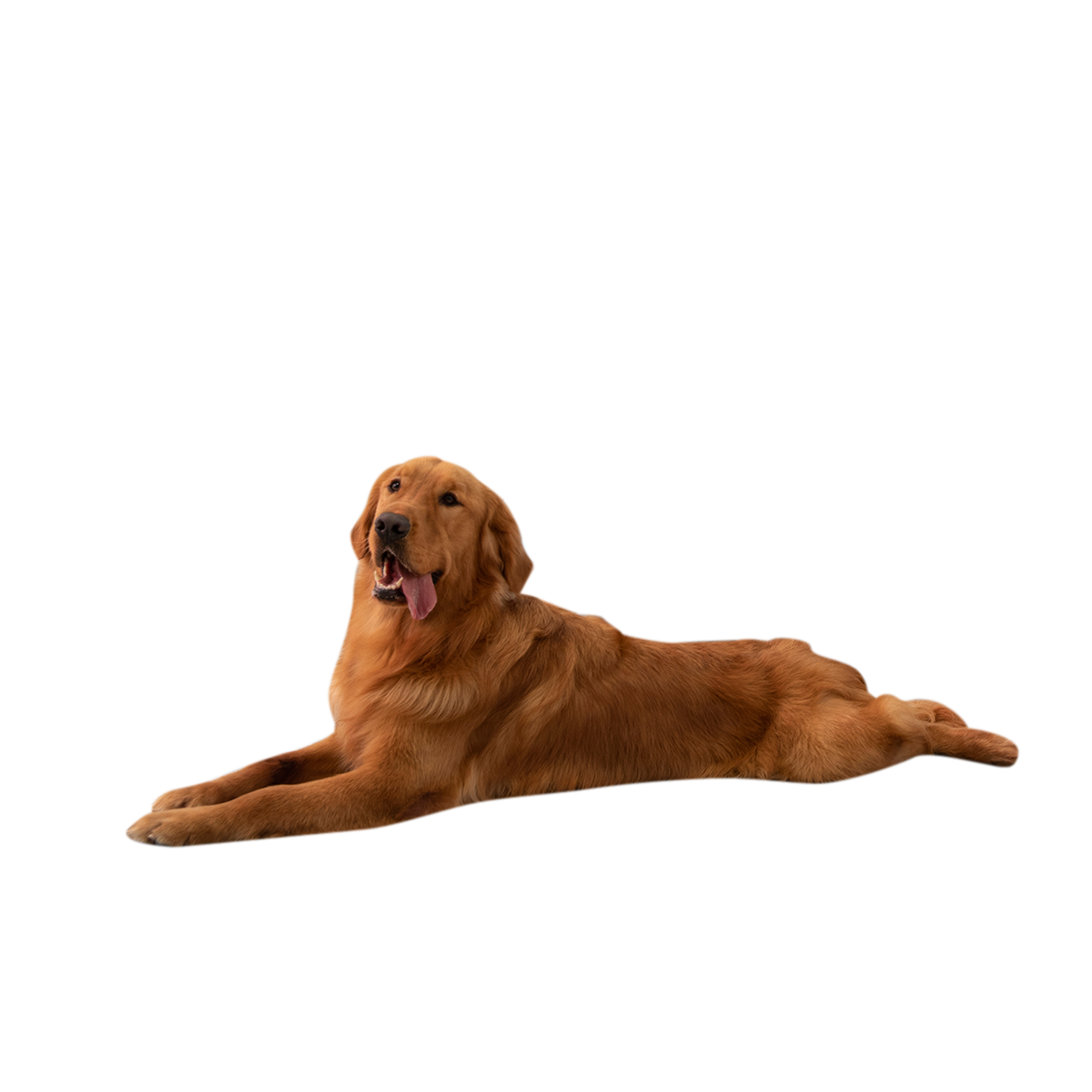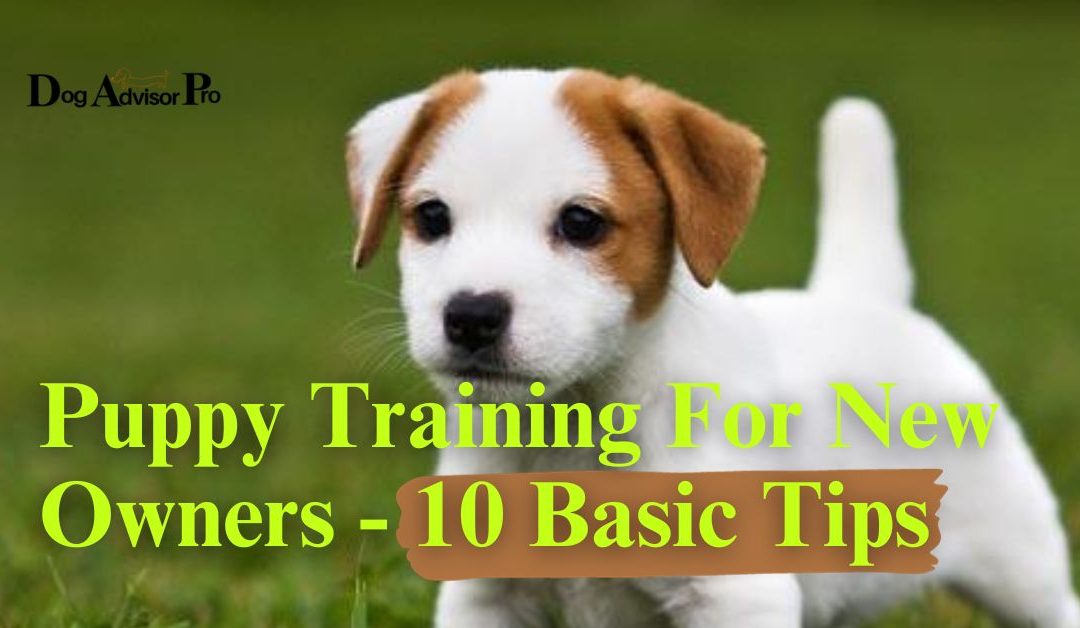Welcoming a furry friend into the world is an exciting journey but can also be challenging. Don’t worry, though! You’ll get through this journey like a pro if you get the right help and have patience. I’ve compiled ten helpful tips in this Puppy Training For New Owners guide. I’ll care for everything, from early morning workouts to ensuring your dog is safe. Do you want to stop those excited jumps? I’ll show you! Also, remember that socializing your puppy early on is very important. Your dog will thank you when they are the social butterfly of the dog park.
Training your dog to go to the bathroom outside can be hard, but rewarding them when they do it right will make you feel great. As a bonus, remember that boxes are for comfort, not punishment. I’ll show you how to make it a cozy place for your dog.
The holiday of Thanksgiving can be a lot of fun, but I’ll show you how to keep your dog quiet and happy. Additionally, I offer a helpful puppy training plan based on age, tips on avoiding common rookie mistakes, and interesting puppy facts that will make you say, “Aww!”
Have question marks appeared in your mind? (FAQs) section discusses everything from where your puppy should sleep on its first night to how to comfort it when it cries.
Finally, I’ll give you some wise advice to make you feel sure of yourself and ready to start this fantastic journey with your new pet friend. So get ready to make beautiful memories with your cute furry friend!
10 Effective Training Tips For New Dog Owners
Here’s a complete description of the ten helpful training tips for new dog owners:
1. Exercise Your Puppy In The Morning
Puppies have a lot of energy to burn because they are naturally busy dogs. Your baby will be able to get rid of pent-up energy and avoid boredom, which can cause damaging behavior if you take it for a quick walk or playtime every Morning.
2. Prevent Jumping Up Early
It’s normal for puppies to jump up, but it can be annoying or even dangerous. Do not react when your puppy jumps up. This will stop them from doing it. They will learn that jumping up doesn’t get them what they want. Give them food or attention once they are quiet.
3. Be Aware Of Your Puppy’s Safety
Toys and other things excite puppies, but they sometimes need to learn what’s safe. Keep your puppy out of harm’s way and consider your surroundings. This means keeping them away from things that could hurt them, like open bodies of water, electrical lines, and harmful plants.
4. Keep Your Puppy’s Crate Readily Available
Crate training is an excellent way to teach your dog to go to the bathroom outside and give them a safe place to sleep. Ensure your baby can always get to their crate and leave the door open so they can come and go as they please.
5. Socialize Early
Puppy socialization is crucial for teaching them how to behave around people and other dogs. Take your puppy to puppy lessons, dog parks, and other places to meet other dogs as soon as possible.
6. Reward Successful House Training
No matter how well you train your dog, accidents will happen. If they do, be gentle and don’t punish them. Instead, praise and treat them when they go to the bathroom outside in the right place.
7. Don’t Use A Crate As Punishment
Dog crates should be a good place for your puppy. If you use the box as a penalty, your dog will think of it as the wrong place to be and not want to go in it.
8. Train The Most Important Commands First
It’s up to you to decide which instructions are the most important for your dog. It would help to teach your dog to sit, stay, come when you call it, and leave it. There are many times when these instructions will be helpful.
9. Stay Consistent
When you train your dog, consistency is critical. Always use the same orders and prizes. This will teach your puppy what you want them to do.
10. End Thanksgiving On A Calm Note
Both dogs and their humans may feel stressed and busy around Thanksgiving. Ensure your puppy has a quiet place to go when things get too much. This will help them stay calm. You could also give them a blanket or toy that makes them feel better.
Now, I’ll explore the puppy training schedule by age.
Puppy Training Schedule By Age
Based on age, here is a dog training plan:
8-12 Weeks Old
- Pay attention to toilet training. After meals and naps, take your puppy outside to the bathroom every two to three hours. Give them praise and treats when they go to the bathroom in the right place.
- Give simple instructions. Train your puppy to do simple things like “sit,” “stay,” and “come.” To motivate them, use positive rewards like treats and praise.
- Start taking your dog to new places. Take them to dog parks, puppy classes, and other places to meet people and other dogs.
- Practice brushing your puppy. Always brush them and cut their nails. The more you touch them, the easier it will be to groom them in the future.
13-16 Weeks Old
- Keep teaching them to use the potty. You should be able to let your puppy go longer without having to go to the bathroom, but you should still take them outside often.
- Keep teaching simple directions. Get them to practice the orders you’ve already prepared, and then add new ones.
- Don’t stop meeting your dog. Show them new people and animals by taking them to different places.
- Start teaching people to obey. Learn more complicated instructions for your puppy, like “down” and “heel.”
- Start practicing being good on a leash. Show your puppy how to walk on a leash without pulling.
17-20 Weeks Old
- Go over fundamental orders again. Do not stop teaching your dog the things you have already taught them.
- Start teaching more complex tasks. Keep training your puppy new things to do, like “come when I call” and “leave it.”
- Keep working on manners on a leash. Take your puppy to various places, like parks and busy streets.
- Start training with a box. Start box training right now if you haven’t already. This is going to make your puppy feel safe.
21-24 Weeks Old
- Keep training your dog to obey. Do what you’ve already taught your dog and start teaching it new things.
- Keep working on making friends. You should take your puppy to new places and meet new people and animals.
- Start showing your dog how to do things. You can learn new things and have fun with your puppy at the same time.
- Keep working on manners on a leash. Take your dog for walks in a variety of places.
- Start taking classes to teach your dog how to behave. This is a great way to get help learning your puppy from a professional.
25-36 Weeks Old
- Keep training your dog to obey. Do what you’ve already taught your dog and start teaching it new things.
- Keep working on making friends. You should take your puppy to new places and meet new people and animals.
- Keep teaching your puppy new things. This is a fun way to prepare and keep your dog busy.
- Keep working on manners on a leash. Take your dog for walks in a variety of places.
- Get your puppy ready to be a teenager. When dogs are teenagers, they may become more challenging to train. Start being patient and consistent right away.
This is a general rule of thumb; each dog grows and learns quickly. You should be patient and consistent with your training and give your puppy treats when they do well. It will take time and work, but you can train your puppy to be well-behaved.
I have discussed another post: What Is Barn Hunting For Dog
New Dog Owners’ Common Mistakes
These are some mistakes that new dog owners often make:
1. Not Researching The Breed Before Getting A Dog.
Every dog breed has its attitude, energy level, and way of being. Before bringing one home, you should learn about dog breeds and ensure they will fit in with your lifestyle.
2. You Need To Socialize Your Dog Correctly.
Puppy socialization is crucial for teaching them how to behave around people and other dogs. If you don’t educate your dog well, it might be more likely to become scared, anxious, or mean.
3. Do Not Train Your Dog.
Training your dog to obey can help you teach it simple orders like “sit,” “stay,” and “come.” This might help you keep your dog safe and under control.
4. Not Being Consistent With Training.
It would help if you stuck to the same ways of training every time. Your dog is more likely to get confused and act up if you send them mixed messages.
5. Need To Give Your Dog More Exercise.
To stay healthy and happy, dogs need to go for walks often. When your dog doesn’t get enough exercise, they might act out or be too busy more often.
6. Not Disciplining Your Dog Effectively.
It would help if you were strict with your dog to teach it right from wrong. When you want to discipline your pet, using positive rewards like treats and praise is better.
7. Do Not Take Your Dog To The Vet For Regular Checkups.
Going to the vet for regular checkups can help keep health problems at bay or catch them early if they do happen.
8. Not Providing Your Dog With A Safe And Comfortable Home.
The place where your dog lives should make them feel safe and sound. It would help if you gave your dog a soft bed, lots of toys, clean water, and food whenever needed.
9. Not Setting Boundaries For Your Dog.
It would help to tell your dog what is immediate and not OK. That way, they’ll learn what kind of behavior is OK and what’s not.
10. Not Training Your Dog To Be Alone.
Dogs like to be with other dogs but also need to learn how to be alone without getting scared or hurt. Start by letting your dog alone for short amounts of time. As they get used to it, slowly add more time.
Puppy Facts For New Owners
Now that you have a picture of the puppy, here are some facts about it:
- Babies are born with closed eyes and can’t see or hear until they are about two weeks old.
- Puppy teeth start to fall out at about 4 to 6 months old. They are 26 in number.
- Before 12 to 16 weeks old, puppies can’t hold their bladders.
- Puppy dogs need between 18 and 20 hours of sleep daily.
- You should take your puppy to the vet every three to four weeks until it is six months old.
- The puppy should eat three to four times a day until it is six months old. After that, it can eat two meals a day.
- From a young age, puppies should be around other dogs and people.
- Positive encouragement is the best way to train puppies.
- Dog puppies need to run around a lot.
- You should love and care for puppies their whole lives.
These facts will help you learn more about and take better care of your new dog. Remember that puppies are like babies; they need much love, care, and time. Caring for your dog will make it a loving, well-adjusted friend.
Here are some common FAQs on puppy training for new owners
FAQs On Puppy Training For New Owners
The First Night, Where Should A Dog Sleep?
Puppies should sleep in a place that makes them feel safe and secure. You could use a box or a small dog bed. Do not let any drafts enter the room; make sure it is not loud.
How Do You Teach A Dog To Be A Good Pet Owner?
As a new puppy owner, there are many things you can do to train your dog. Here are some ideas:
- Keep going and be patient. Be patient with your dog, and don’t give up. Training takes time and work. Make sure that your instructions and awards are always the same.
- Use praise and rewards. Dogs are more likely to learn if they get treats when they behave well. When your baby does what you say, give them praise, treats, or toys.
- Begin with easy orders. First, teach your puppy simple orders like “come,” “stay,” and “sit.” There are lots of times when these orders will come in handy.
- Wait for accidents to happen. Let puppies make mistakes, and don’t punish them for it. Just clean up the mess and let them go pee outside.
- Make friends for your puppy. Puppy socialization helps them learn how to behave around people and other dogs. Take your puppy to dog parks, classes, and other places to meet other dogs and people.
What Is The 3-3-3 Rule For Puppies?
- As a general rule, the 3-3-3 rule can help new puppies get used to their new home. Puppies should be:
- With no one else for more than three hours after three days in their new home
- slowly introduced to new things, one at a time, every three minutes
- Getting three hours of sleep at a time
What Should You Do If Your Pet Cries The First Night?
Puppy dogs often cry their first night or two in their new home. They do this because they miss their mother and siblings. If you want your puppy to feel at home, here are some things you can do:
- Give them some toys and a comfy bed.
- Put their box next to your bed so they can hear your heartbeat.
- To calm them down, whisper to them and pet them.
- Make them feel cozy by giving them a blanket or toy animal to hold.
What Not To Do With A New Puppy?
When you have a new baby, you shouldn’t do the following:
- Don’t punish them for what they did. Just clean up the mess and let them go pee outside.
- Leave them alone for short amounts of time. Leave your puppy alone for a maximum of a few hours. They need to be with you all the time.
- Could you not feed them too much? Dog puppies must eat a lot, but giving them too much is easy. Make sure you follow the directions on the food bag for gifting.
- Do not let them run free. It would always help to keep your puppy on a leash when you’re out in public because they are still learning to behave.
- Do not let potent agents touch them because puppies can’t handle strong chemicals. Clean them with natural products, and don’t use poisons in the yard.
Last Suggestion
It’s fun and challenging work to have a dog. Training your new animal friend takes time, consistency, and knowing what they need. Don’t make the same mistakes when teaching your dog. Instead, follow the tips and connect well with your dog.
Train your baby on a plan that works for them as they get bigger. This will help them behave well and stay healthy as they grow up. Remember the importance of keeping your dog safe while letting them meet many new people. Also, remember to give them something nice to be good!
People who just got a puppy often have questions, like where to put the puppy to sleep or what to do if it cries at night. They can help you deal with these early problems better if you know the answers. Finally, your bond with your dog will be vital if you are patient, loving, and teaching well. Have fun as you and your puppy learn and grow, and don’t be afraid to ask teachers or vets for help if you need it. Anyway, If you know anything else, please comment below.

Hello, I’m Ethan Mitchell. My passion is dog training and behavior enthusiasts. With years of experience working with various breeds, my goal at Dog Advisor Pro is to help dog owners build strong, loving relationships with their furry friends through effective training techniques. Understanding a dog’s behavior is the key to harmonious companionship. I am dedicated to sharing practical training tips that improve the lives of dogs and their owners.


